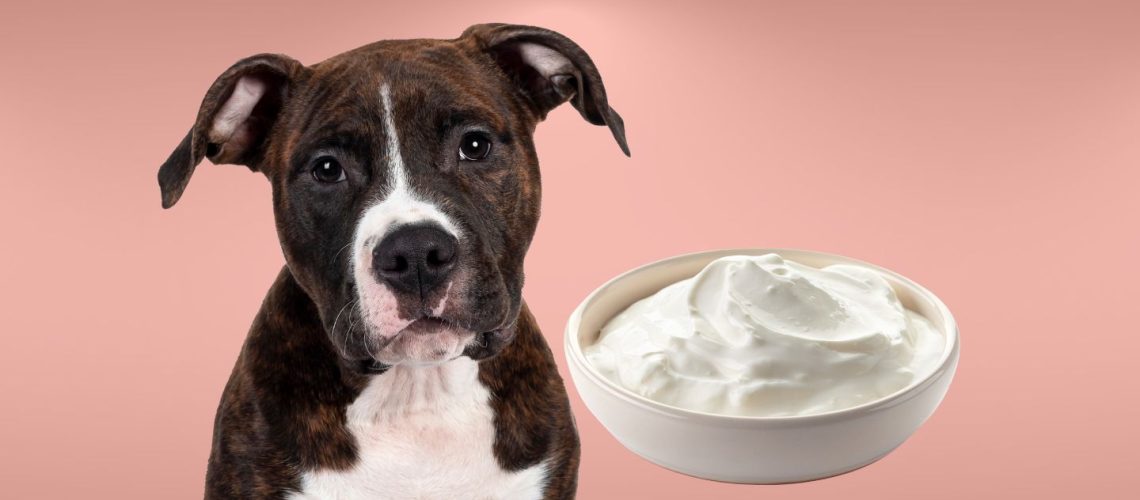The short answer is that, in moderation, sour cream can be a safe and potentially beneficial treat for dogs. However, it is important to monitor your dog's reaction and be mindful of the serving size to avoid digestive upset.
Nutritional Value of Sour Cream
Protein Content
Sour cream is a dairy product made from fermented cream and is a good source of protein. Consuming protein helps dogs maintain muscle mass and supports overall growth and development.
Calcium Content
Sour cream also contains calcium, which plays a crucial role in bone health, blood clotting, and nerve function in dogs.
Vitamins and Minerals
In addition to protein and calcium, sour cream contains vitamins A and B12. Vitamin A supports eye health, while vitamin B12 aids in nerve and brain function.
Fat Content
Sour cream also contains a high proportion of fat, serving as an energy source and promoting healthy skin and coat for dogs.
Probiotics and Gut Health
The beneficial bacteria in sour cream can help promote a healthy gut microbiome in dogs, which is essential for proper digestion and immune function.
Potential Benefits of Sour Cream for Dogs
Healthy Coat and Skin
The fat content in sour cream nourishes a dog's coat and skin, keeping it shiny and healthy.
Bone Health
Calcium in sour cream supports strong bones and teeth in dogs and is especially important for growing puppies.
Immune System Support
The probiotics found in sour cream can help boost your dog's immune system, keeping them healthy and better able to fight off illnesses.
Appetite Stimulation for Picky Eaters
Sour cream can be used in small amounts to entice picky eaters, adding flavor and nutrients to their diet.
Risks and Precautions
Lactose Intolerance in Dogs
Some dogs are sensitive to dairy products, resulting in lactose intolerance. It's essential to monitor your dog's reaction to sour cream and adjust the amount accordingly.
Digestive Upset
Feeding too much sour cream can lead to digestive upset, such as diarrhea or vomiting. Monitor the serving size to minimize these risks.
Allergies and Sensitivities
Some dogs may be allergic to sour cream or experience sensitivities, resulting in skin or digestive issues. Consult with your veterinarian if you suspect an allergy or sensitivity.
Toxic Ingredients in Some Sour Cream Products
Avoid feeding your dog sour cream containing added ingredients like onion or garlic, which can be toxic to dogs.
Serving Size and Frequency
Calculating the Appropriate Amount
Sour cream should make up no more than 4-6% of your dog's daily caloric intake. For small dogs, this is about a teaspoon per day, while larger dogs may be able to handle a tablespoon or two.
Introducing Sour Cream to Your Dog's Diet
Start by feeding a small amount of sour cream to gauge your dog's reaction. Gradually increase the amount as needed, making sure not to exceed the recommended serving size.
Alternatives to Sour Cream for Dogs with Dairy Sensitivities
For dogs with dairy sensitivities, consider alternative treats such as plain, unsweetened yogurt or cottage cheese, which contain lower levels of lactose.
Signs to Look Out for After Feeding Sour Cream
Positive Reactions
A healthy dog may benefit from sour cream with healthier skin, coat, and digestion.
Negative Reactions
Monitor for signs of digestive upset or allergies, such as vomiting, diarrhea, itching, or skin issues.
When to Consult a Veterinarian
If your dog experiences any adverse reactions or if you have concerns about incorporating sour cream into their diet, consult your veterinarian for guidance.
Frequently Asked Questions
Can Puppies Eat Sour Cream?
In moderation and with your veterinarian's approval, puppies may safely enjoy sour cream as a treat.
Can Dogs Eat Flavored Sour Cream?
Dogs should only consume plain sour cream, as flavored varieties may contain harmful ingredients like onion or garlic.
What Other Dairy Products Can Dogs Eat Safely?
In moderation and with veterinary approval, dogs can enjoy plain, unsweetened yogurt and cottage cheese.
Are There Any Dogs That Should Not Be Fed Sour Cream?
Dogs with lactose intolerance, dairy allergies, or sensitivities should avoid sour cream.
Conclusion
In moderation, sour cream can be a safe and potentially beneficial treat for dogs. However, it is important to monitor your dog's reaction and be mindful of the serving size to avoid digestive upset. As always, it is best to consult with your veterinarian before introducing any new food into your dog's diet.











